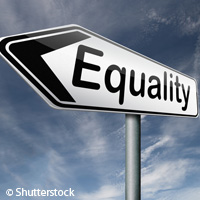Increasing competitiveness through equality
Countries and individual businesses are always on the search to increase their competitive edge, giving themselves an advantage against their competitors in the never-ending quest for profits and growth. A new report out of Norway is giving countries a clue as to how they could give themselves that competitive edge - through equality. According to the report, the countries that have done the most to promote equal opportunities also have access to far more talent than countries that have fallen behind with regard to equality. Their results were presented this summer at the annual conference of the Academy of International Business, attended by no less than 1,400 academics in Washington D.C. 'Human capital - people with education and skills -, are a critical factor in terms of competitiveness and the ability to address the organisation's key tasks,' stated Gillian Warner-Søderholm, an Associate Professor at BI Norwegian Business School. In other words, focusing on equal opportunities re-enforces human capital, both in the business and the private sectors. Warner-Søderholm worked with Associate Professor Andy Bertsch at Minot State University, North Dakota, United States, and together carried out a large-scale study to uncover connections between a nation's cultural values and the degree of equality of the sexes. 'We wanted to pinpoint the cultural values that promote or hinder equality,' Warner-Søderholm explained. Knowing this makes it possible to implement measures in the right areas. As the basis for their report the researchers utilised data on cultural values taken from the study known as GLOBE (Global Leadership and Organizational Behavior Effectiveness), which covers 62 countries. The GLOBE study was a multi-phase, multi-method research project in which investigators around the world examined the inter-relationships between societal culture, organisational culture and organisational leadership. The data collected as part of this study is based on more than 17,000 employees from a wide selection of industries. It is worth noting that the GLOBE study has mapped the following cultural values: collectivism, assertiveness, performance orientation, person orientation, gender egalitarianism, power distance, future orientation, uncertainty avoidance and context. Warner-Søderholm and Bertsch then compared prominent cultural values in different countries with gender equality measures instituted in the same countries. These measures were mapped by three internationally recognised equality rankings, namely the Gender Inequality Index (GII), the Women's Economic Opportunity Index (WEO) and the Global Gender Gap Index (GGGI). Their research discovered that nations where equality of the sexes is considered important (the cultural value identified as gender egalitarianism) do well in the index measuring women's economic opportunities. More importantly, the study showed that countries that focus on avoiding uncertainty through good planning are also characterised by a lower degree of gender inequality. 'In the Scandinavian countries there is more focus on planning to reduce risk than, say, in the United States. These countries have also done more to promote equality as measured by international indicators,' emphasised Warner-Søderholm. Warner-Søderholm and Bertsch also found that most of the countries that are preoccupied with planning for the future (future orientation), are leaders in the area of re-enforcing equality of opportunities and putting it into practice. Their study was also a major highlight of the conference and was recognised as one of the three best contributions for the Stockholm School of Economics Women in the Academy of International Business (SSE/WAIB) Award, for increased gender awareness in international business research. 'This was a welcome surprise,' commented Warner-Søderholm.For more information, please visit:Norwegian Business School:http://www.bi.edu/BI Business Review http://www.bi.edu/bizreview/
Countries
Norway



